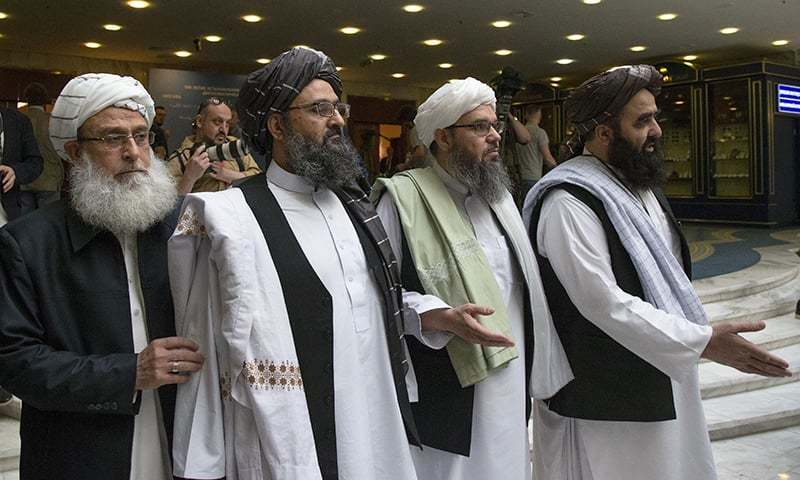Afghan government and Taliban representatives said on Wednesday they had reached a preliminary deal to press on with peace talks, their first written agreement in 19 years of war and welcomed by the United Nations and Washington.
The agreement lays out the way forward for further discussion but is considered a breakthrough because it will allow negotiators to move on to more substantive issues, including talks on a ceasefire.
“The procedure including its preamble of the negotiation has been finalised and from now on, the negotiation will begin on the agenda,” Nader Nadery, a member of the Afghan government's negotiating team, told Reuters.
The Taliban spokesman confirmed the same on Twitter.
The agreement comes after months of talks in Doha, the capital of Qatar, encouraged by the United States, while the two sides are still at war, with Taliban attacks on Afghan government forces continuing unabated.
US Special Representative for Afghan Reconciliation Zalmay Khalilzad said that the two sides had agreed on a “three-page agreement codifying rules and procedures for their negotiations on a political roadmap and a comprehensive ceasefire”.
Taliban insurgents refused to agree to a ceasefire during the preliminary stages of talks, despite calls from Western capitals and global bodies, saying that that would be taken up only when the way forward for talks was agreed upon.
“This agreement demonstrates that the negotiating parties can agree on tough issues,” Khalilzad said on Twitter.
The Taliban were ousted from power in 2001 by US-led forces for refusing to hand over Osama bin Laden, the architect of the September 11 attacks on America. A US-backed government has held power in Afghanistan since then, although the Taliban have control over wide areas of the country.
Under a February deal, foreign forces are to leave Afghanistan by May 2021 in exchange for counter-terrorism guarantees from the Taliban.
US President Donald Trump has looked to hasten the withdrawal, despite criticism, saying he wanted to see all American soldiers home by Christmas to end America's longest war.
The Trump administration has since announced that there would be a sharp drawdown by January, but at least 2,500 troops would remain beyond then.
German Foreign Minister Heiko Maas on Tuesday warned Nato against withdrawing troops prematurely and said it should “ensure that we tie further troop reductions in Afghanistan to clear conditions”.
UN envoy for Afghanistan Deborah Lyons welcomed the “positive development” on Twitter, adding that “this breakthrough should be a springboard to reach the peace wanted by all Afghans”.
Last month, an agreement reached between Taliban and government negotiators was held up at the last minute after the insurgents balked at the document's preamble because it mentioned the Afghan government by name.
A European Union diplomat familiar with the process said that both sides had kept some contentious issues on the side to deal with separately.
“Both sides also know that Western powers are losing patience and aid has been conditional [...] so both sides know they have to move forward to show some progress," said the diplomat, requesting anonymity.













































